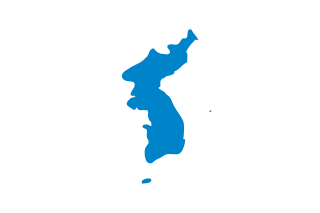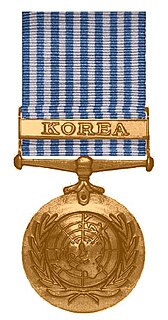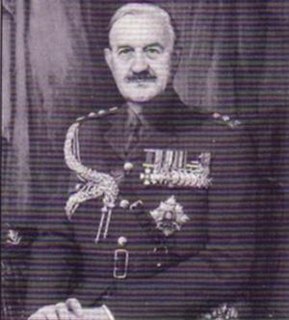
General Sir Peter Mervyn Hunt, was Chief of the General Staff, the professional head of the British Army, from 1973 to 1976. He served in the Second World War and commanded British Forces deployed in response to the Indonesia–Malaysia confrontation. Later in his career he provided advice to the British Government at a time of continuing tension associated with the Troubles in Northern Ireland.
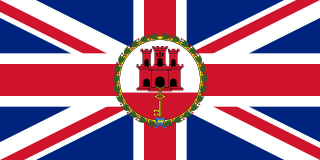
Field Marshal Sir John Lyon Chapple, was a career British Army officer in the second half of the 20th century. He served as Chief of the General Staff, the professional head of the British Army, from 1988 to 1992. Early in his early military career he saw action during the Malayan Emergency and again during the Indonesia–Malaysia confrontation and later in his career he provided advice to the British Government during the Gulf War.
General Sir Roger Neil Wheeler, is a retired British Army officer who served as Chief of the General Staff from 1997 to 2000. During his career he was involved in the Cyprus Emergency, directed military operations in Northern Ireland and led the UK's forces deployed on NATO operations in Bosnia. He is now a non-executive director of several businesses operating on an international basis.

Major General Clifford Coffin VC, CB, DSO & Bar was an officer in the British Army and was a recipient of the Victoria Cross, the highest and most prestigious award for gallantry in the face of the enemy that can be awarded to British and Commonwealth forces.

Sir Charles Norman Lockhart Stronge, 8th Baronet, MC, PC, JP, was a senior Ulster Unionist Party politician in Northern Ireland.

General Sir William Norman Roy Scotter, was commander-in-chief, British Army of the Rhine, from September 1978 until October 1980.
Brigadier-General Sir Edward Henry Charles Patrick Bellingham, 5th Baronet CMG, DSO, DL was a British and Irish soldier, politician and finally diplomat.
Major-General William Alfred Dimoline CB CMG CBE DSO MC was a senior British Army officer who saw service during World War I and World War II. His nickname was "Dimmo."

General Sir William Godfrey Fothergill Jackson, was a British Army officer, military historian, author and Governor of Gibraltar.

General Sir Nicholas Ralph "Nick" Parker is a former British Army officer who served as Commander Land Forces until December 2012.
Lieutenant General Sir John Fullerton Evetts CB, CBE, MC was a senior British Army officer.
Lieutenant-General Sir Robert Francis Richardson, KCB, CVO, CBE was a British Army officer. Among other posts, he commanded a battalion and a brigade during the Troubles before becoming General Officer Commanding in Northern Ireland from 1982 to 1985.

General Sir James Stuart Steele was a senior British Army officer who served as Adjutant-General to the Forces.
General Sir George Leslie Conroy Cooper is a former Adjutant-General to the Forces.
General Sir Robert Cyril Ford was a British army general who was Adjutant-General to the Forces. The Bloody Sunday shootings occurred during his tenure as Commander Land Forces, Northern Ireland.

General Sir Nicholas Patrick Carter, is a Kenyan-born senior British Army officer. He served as commanding officer of 2nd Battalion, Royal Green Jackets in which role he was deployed to Bosnia in 1998 and Kosovo in 1999. After service in Afghanistan, he took command of 20th Armoured Brigade in 2004 and commanded British forces in Basra. He was subsequently appointed General Officer Commanding 6th Division, which was deployed to Afghanistan with Carter as Commander ISAF Regional Command South, before he became Director-General Land Warfare. After that he became Deputy Commander Land Forces in which role he was the main architect of the Army 2020 concept. After a tour as Deputy Commander, International Security Assistance Force, he assumed the position of Commander Land Forces in November 2013. In September 2014, he became head of the British Army as Chief of the General Staff succeeding General Sir Peter Wall. In June 2018 he succeeded Air Chief Marshal Sir Stuart Peach as Chief of the Defence Staff.
Brigadier Henry Joseph Patrick Baxter was an Irish born fourth generation soldier who overcame the handicap of being blind in one eye to join the army and rose to command one of the largest and most controversial regiments in the British Army.
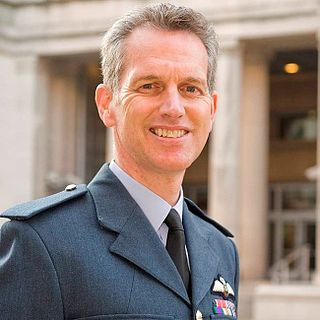
Air Chief Marshal Sir Stephen John Hillier, is a senior Royal Air Force officer, who serves as Chief of the Air Staff. He won the Distinguished Flying Cross for actions in the Gulf in 1999 and was awarded the US Bronze Star Medal for service in the Iraq War. He went on to be Air Officer Commanding, No. 2 Group, Director Information Superiority at the Ministry of Defence and then Deputy Chief of the Defence Staff (Capability). Hillier succeeded Air Chief Marshal Andrew Pulford as Chief of the Air Staff on 12 July 2016.







